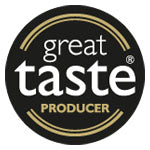Shangri-la tea is a great tasting oolong tea. I prefer to brew it lightly for about a minute, to get a rich amber coloured tea. So it looks good, smells good and taste superb. I also get 4 brews from one set of leaves, so it is economical too.
Delicious chai like tea! Perfect if you’re not a fan of a bit of spicy heat with your chai. Obviously it’s spiced but it’s not spicy like the delicious chai Karma does. I hope this tea isn’t just offered at this time of year as I would drink it all year round!!
This chai is delicious and spicy!!! I have only brewed with water and added soy milk after but I will deffo try the pan method recommended on this page! This was sent as a sample in my order and I will deffo be purchasing….I’ve already had one cup of it this evening and am currently now brewing the rest of the sample in a 3 cup teapot to drink, it’s really fantastic! You could probably get more cups from the sample but I always like to brew extra strong tea so I like to go overboard with the amount of tea I brew as I don’t like the astringency from over-brewed tea.


